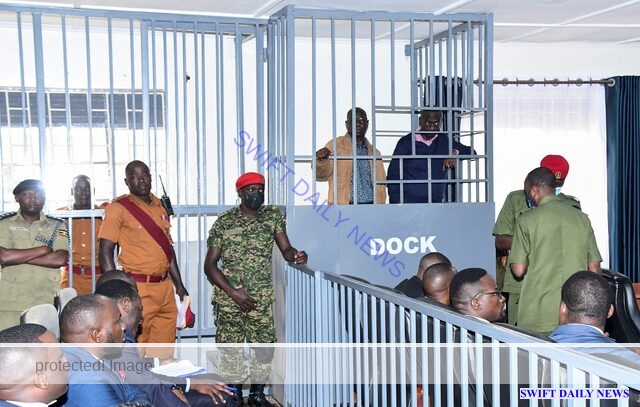By Our Reporter
The government’s push to expand the General Court Martial’s jurisdiction to include civilians under “exceptional circumstances” has sparked heated debate in Parliament, as legal experts and legislators question whether the proposal defies a recent Supreme Court ruling.
Attorney General Kiryowa Kiwanuka appeared before the Joint Committee on Legal and Defence Affairs to clarify that the Supreme Court’s January 2025 judgment did not outlaw military trials of civilians. Rather, he argued, it challenged the composition of the Court Martial—not its constitutional mandate.
“I can state without fear of contradiction that the Supreme Court did not say civilians cannot be tried in the General Court Martial,” Kiwanuka told MPs. “The Court’s concern was the manner in which the Court Martial was constituted at the time—not the principle of jurisdiction itself.”
His remarks were in defense of the Uganda People’s Defence Forces (UPDF) Amendment Bill, 2025, introduced by Defence Minister Jacob Oboth. The Bill aims to restructure military courts, clearly define their scope, and outline the qualifications for Court Martial leadership. A key feature is Clause 30, which outlines specific scenarios under which civilians could be subjected to military justice.
These include instances where a civilian:
-
Voluntarily accompanies the Defence Forces on active duty;
-
Is serving under an agreement to be subject to military law;
-
Is found in unlawful possession of military-grade weapons, uniforms, or equipment;
-
Aids a soldier in committing serious crimes such as murder, treason, or aggravated robbery.
Legal Tensions Emerge
Despite the government’s defense, opposition lawmakers raised constitutional alarms. Jonathan Odur (Erute South) challenged the Attorney General to show how the Bill aligns with the majority opinion in the Supreme Court’s ruling.
“I want to know where in this Bill you’ve incorporated the majority opinion,” Odur said. “It appears the drafters created their own version of the judgment and inserted it into this legislation.”
Echoing similar concerns, MP Mathias Mpuuga (Nyendo–Mukungwe) argued that the proposed law threatens constitutional protections under Articles 28 (right to a fair hearing) and 44(c) (non-derogable rights).
“These amendments suggest the UPDF Act is becoming superior to the Constitution,” Mpuuga said. “The ruling made it clear—civilian courts are competent to try these cases. Why are we bypassing them?”
Support with Conditions
Not all MPs opposed the Bill. Abdu Katuntu (Bugweri County) acknowledged the necessity of military trials in cases involving grave national security threats, such as civilians caught with advanced weaponry. However, he criticized the military’s past misuse of its judicial powers.
“To the officers of the Court Martial—this entire debate is the result of your overreach,” Katuntu said. “If a civilian is found with artillery, let them be tried by the military. But prosecuting someone over a beret? That trivializes justice.”
Kiwanuka stressed that the revised law would apply military jurisdiction only in narrow and justifiable cases, especially when a soldier’s involvement or military expertise was central to the offense.
“If a civilian uses tactics learned from soldiers to commit a crime, that context matters,” he said. “This isn’t about criminalizing ordinary civilians—it’s about closing legal gaps that threaten national security.”
Diverging Views Within Parliament
The proposed law drew both endorsement and criticism from across the aisle.
Labwor County MP Jimbricky Norman Ochero supported the Bill, citing Uganda’s history of post-conflict arms proliferation. “Every regime change floods our communities with illegal firearms. This law can be a deterrent,” he said.
Soi County’s Chemaswet Kisosi echoed the sentiment, warning that removing the military court’s authority would undermine order within the UPDF. “Without the Court Martial, the Army loses discipline. Let it remain—it protects both civilians and the forces.”
However, Rubabo County MP Naboth Namanya raised concerns over the Bill’s ambiguity—specifically a clause that designates black shoes as exclusive military attire.
“I’m wearing black shoes—as are most of us here. Does this make us subjects of military law?” he asked. “Let’s not open the door to absurdity.”
Kiwanuka clarified that the provision aimed to avoid confusion during security operations, not criminalize civilians for common clothing choices.

